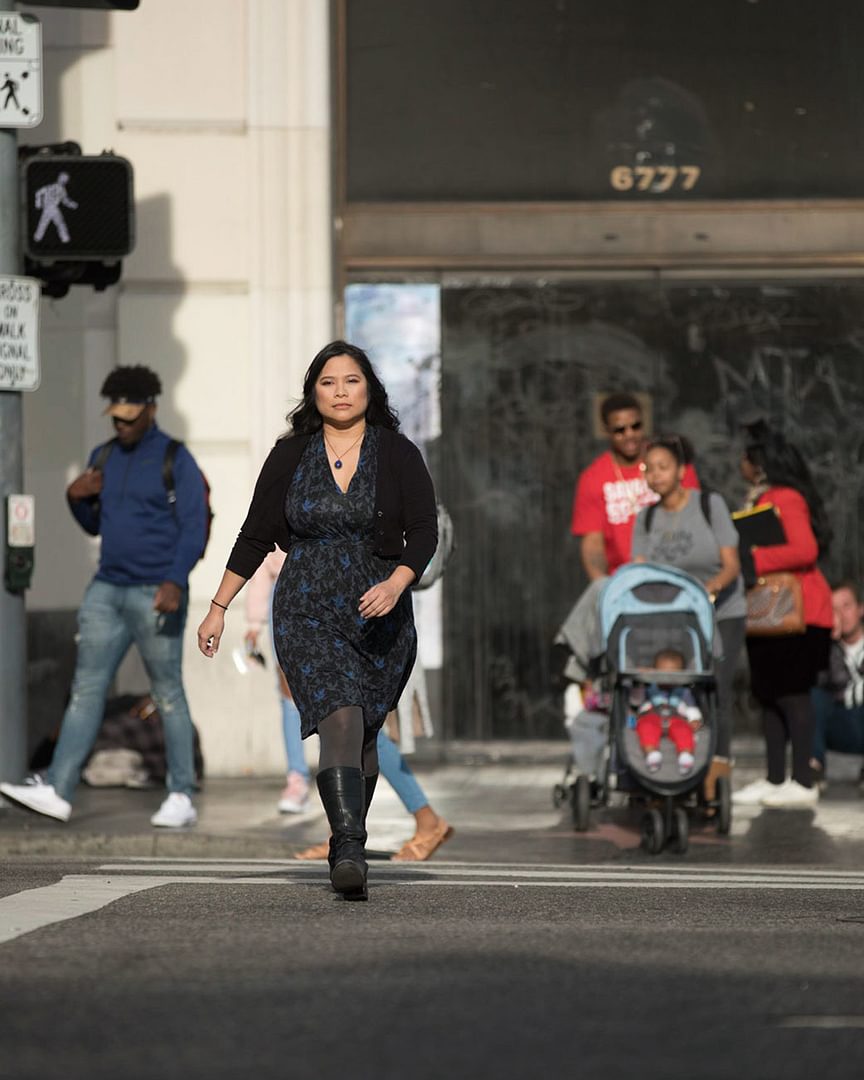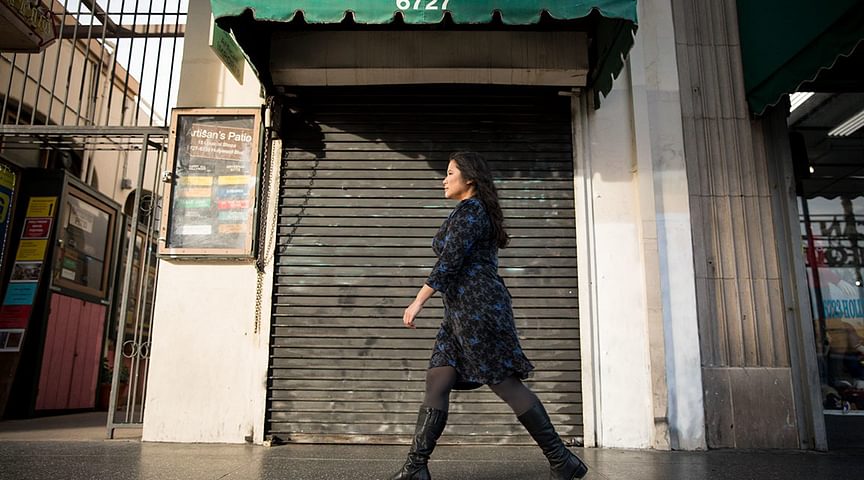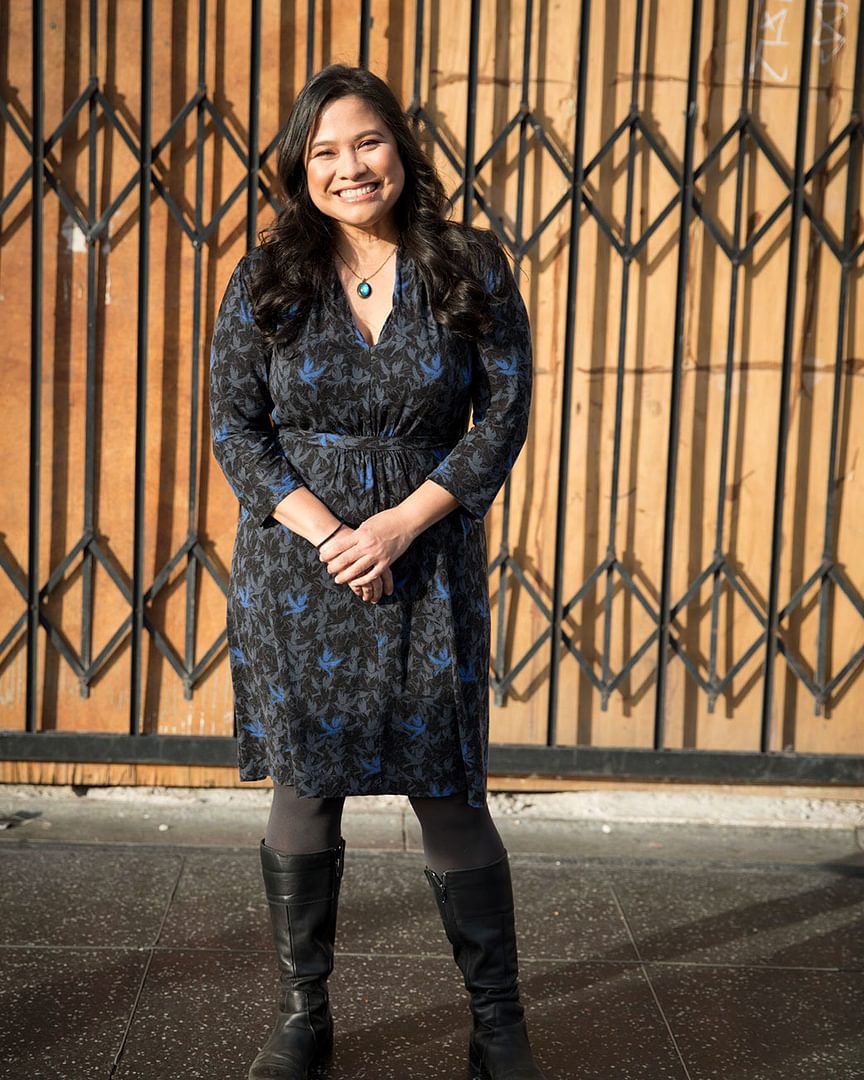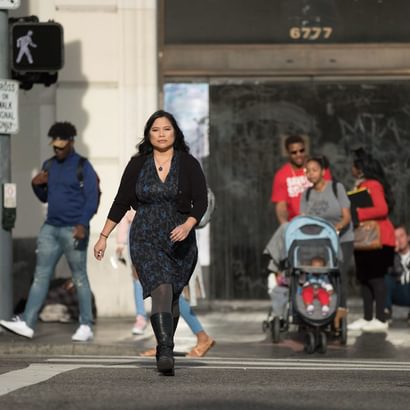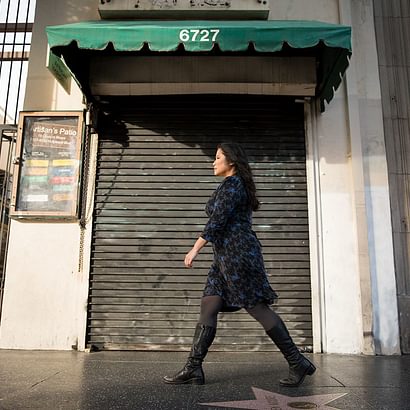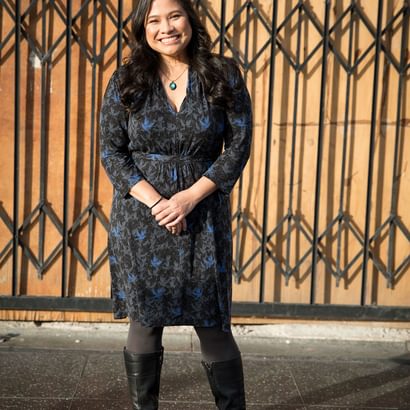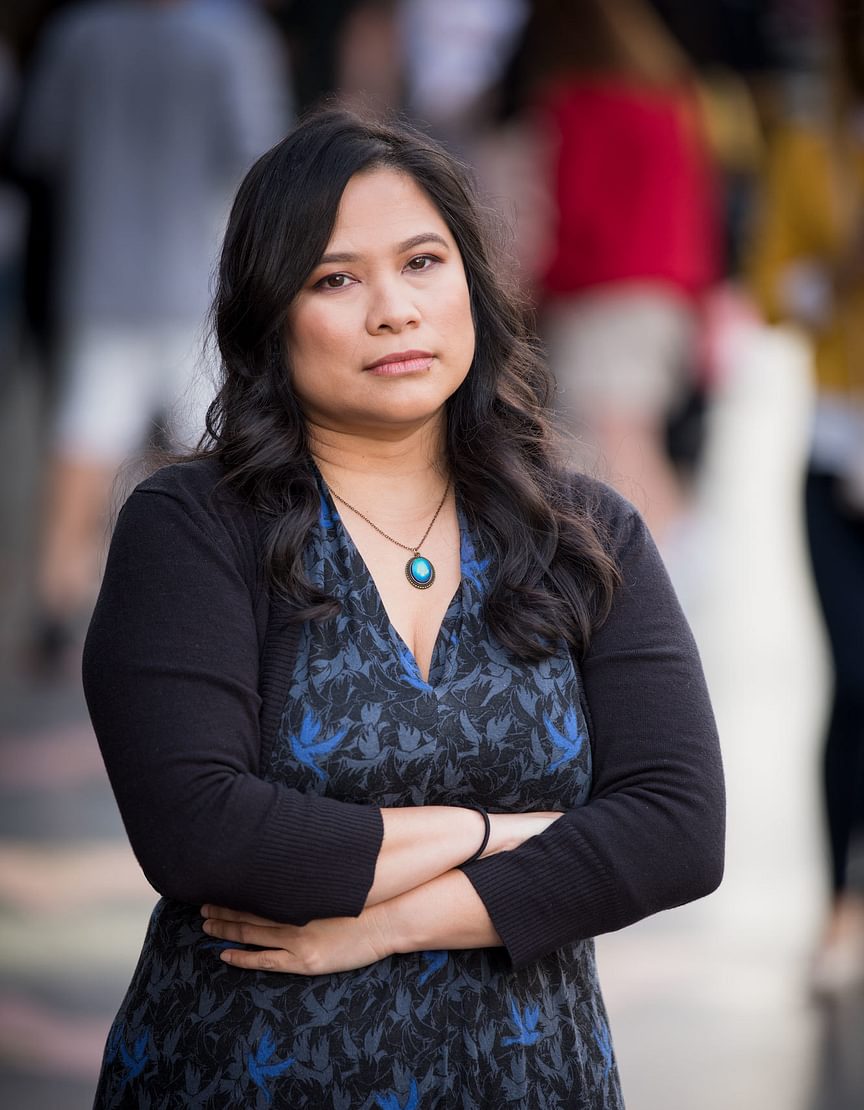
August 12, 2019
Trailblazers
Noy Thrupkaew ’92 shines a light on human traffickingby Rita Savard
The men were farmworkers. Six of them. Mostly from the north and northeastern regions of Thailand. Survivors of human trafficking, they were brought to the United States by Global Horizons, a Los Angeles-based labor recruiter later indicted in what had been the largest human trafficking case in U.S. history. Gathering around a woven mat serving as a makeshift table on their living room floor, they shared personal stories with a reporter.
“They’d feed me these over-the-top meals,” recalled Thrupkaew. “One day they asked me what sort of fruit I liked, and I said that I liked strawberries. So the next day when I came by... they put all the food on the mat, including a plate of perfect long-stemmed strawberries.”
“They’re all for you,” one of the men said. They didn’t eat strawberries much, Thrupkaew explained, because when you pick them all the time, they told her, “they swim in front of your eyes when you close them.”
Thrupkaew, an investigative journalist whose byline has appeared in The New York Times, The Washington Post, National Geographic, and The Nation, started thinking about all the products she buys and consumes every day—from clothes to electronics to face moisturizer, that unlimited shrimp buffet, and everything in the grocery store. Whose hands made it, grew it, or harvested it? Were they being treated with respect and dignity? Were they even being treated lawfully?
The Thai farmworkers are among hundreds of survivors, law enforcement officials, and NGO workers whom Thrupkaew has interviewed during the past 13 years in researching and writing about human trafficking. Her reporting on the economics of exploitation has taken her around the world and inside cases within the United States. News on the hard-to-cover-topic is limited, and Thrupkaew’s investigative journalism has not only shed light on this widely unseen crime, it has taken apart what the crime looks like on U.S. soil.
The system was built to obscure. As a result, labor trafficking often goes unrecognized, unseen, and unprosecuted.
”The statistics are staggering: More than 20 million people are victims of forced Iabor worldwide, according to the International Labor Organization. “There is a common misconception that human trafficking always relates to forced sexual labor, Thrupkaew said. “While forced prostitution is one aspect of trafficking, most people don’t know that most of this issue is around forced non-sexual labor, that men are also victims, and that current laws—both international and right here in America—allow human trafficking to continue.”
Human trafficking is defined by the United Nations Office on Drugs and Crime as “the acquisition of people by improper means such as force, fraud, or deception, with the aim of exploiting them.” Forced labor, slavery, servitude, and even organ removal are other very real aspects of trafficking, which has become a growth business raking in billions of dollars annually. And loopholes in domestic and international laws have created a culture of complicity.
Digging into the agricultural sector, Thrupkaew found there were too many fields, too few labor inspectors, and multiple layers of plausible deniability between grower, distributor, and processor.
“The system was built to obscure,” Thrupkaew said. “As a result, labor trafficking often goes unrecognized, unseen, and unprosecuted. And the systems that support it go on unchanged. We simply do not want to acknowledge that much of our global economy was built on chattel slavery and still depends on poor and exploited people’s labor, that our migration system entrenches exploitation, and that our criminal justice systems are often used in punitive rather than protective ways against the most disenfranchised, increasing their vulnerability to being trafficked. I mean, you can call it vulnerability. But we should call it injustice.”
The Thai farmworkers Thrupkaew interviewed were promised three years of agricultural work from Global Horizons. Taking a risk for a better life, they, and hundreds of others like them, sold their land and cherished personal belongings to pay the recruitment company. When they came to America, their passports were confiscated. Some of the men were beaten and held at gunpoint. Some worked so hard, they fainted in the fields. And yet, the men resisted—many tried to escape, to organize, to document their mistreatment.
“We often dwell on human trafficking survivors’ victimization,” she said.“But that has not been my experience of them. They have taught me that we are more than our worst days. That each of us is more than what we lived through."
In 2016, the labor recruiter was ordered by a federal judge to pay $7.6 million for subjecting the farmworkers to abuse and a hostile work environment.
While there are no silver bullets to solving the worldwide human trafficking epidemic, Thrupkaew believes that collectively, we can make a difference.
“What would happen if we truly held corporations accountable for abuses in their supply chains? If domestic workers and farmworkers could access equal labor protections? If we ended recruitment fees for migrant workers and decided that guest workers should have the right to organize without fear of retaliation? And what if we stood in solidarity with trafficking survivors, workers’ rights groups, social-justice and racial-justice movements—the people who are trying to end the systemic injustices that actually lead to labor exploitation? These would be decisions heard around the world.”




